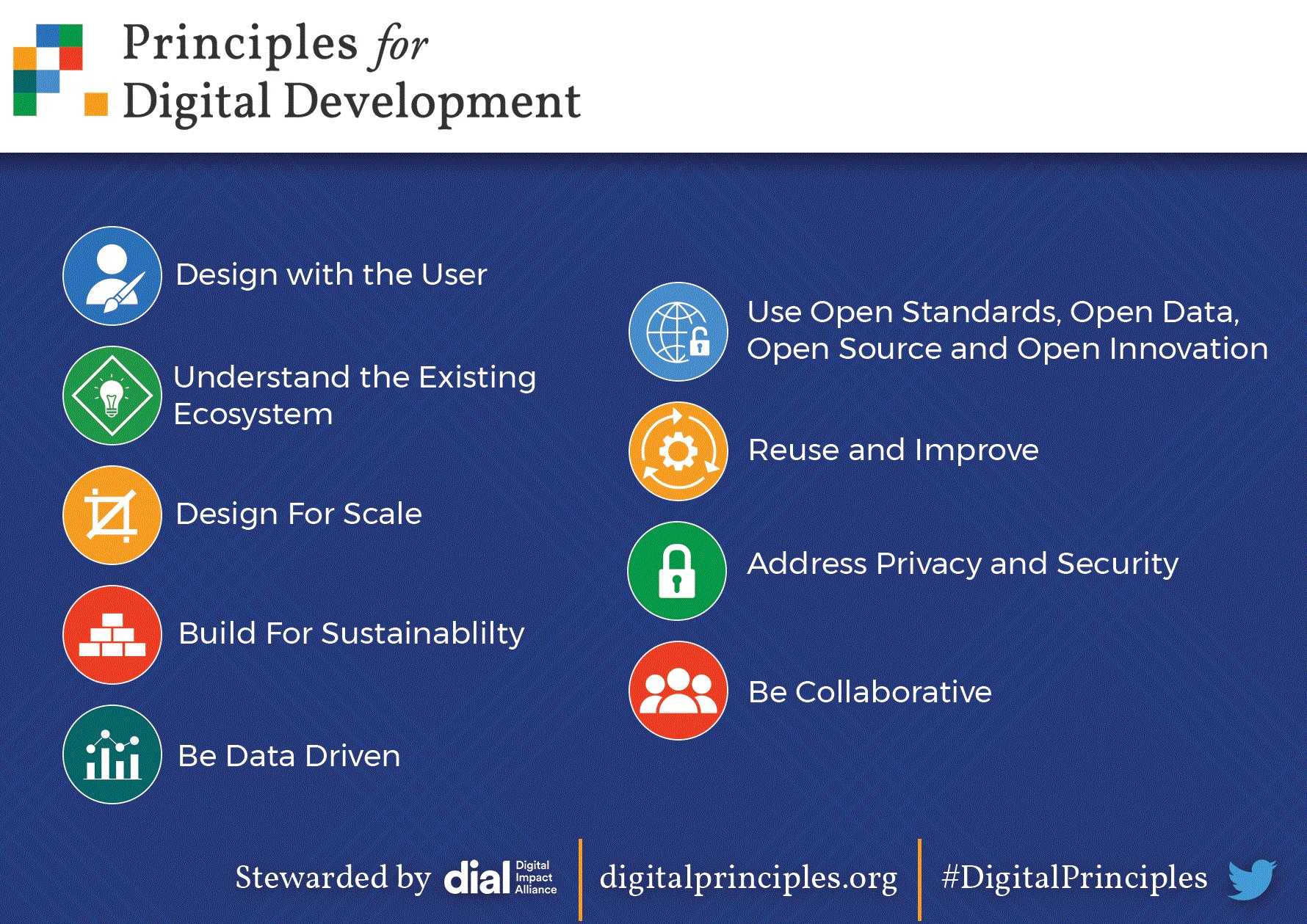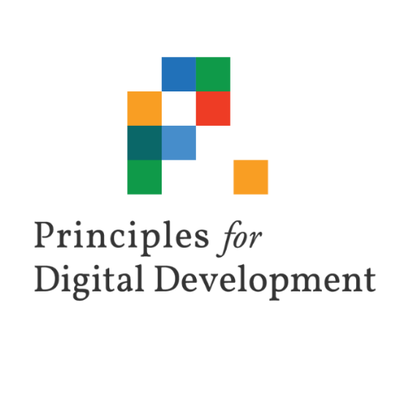Bangladesh NGOs Network for Radio and Communication (BNNRC) is delighted to become the 200th organization to endorse the Principles for Digital Development! It is good practice guidelines for doing development in a digital world that are regarded by the public and private sector as the global standard. BNNRC is in Special Consultative Status with the Economic and Social Council (ECOSOC) accredited with World Summit on the Information Society (WSIS) SDGs Media Compact of the United Nations and UN WSIS prize winner 2016, Champion 2017 & 2019.
 BNNRC’s approach to media development is both knowledge-driven and context-sensitive, and it takes into account the challenges and opportunities created by the rapidly changing media environment in Bangladesh including community radio development giving voices for the voiceless. At BNNRC, we use digital technologies for promoting multi stakeholders dialogue, inspiration and conversation about the importance of access to information, plural and independent media, freedom of expression and transparency – elements that are crucial for sustainable development and good governance in rural Bangladesh.
BNNRC’s approach to media development is both knowledge-driven and context-sensitive, and it takes into account the challenges and opportunities created by the rapidly changing media environment in Bangladesh including community radio development giving voices for the voiceless. At BNNRC, we use digital technologies for promoting multi stakeholders dialogue, inspiration and conversation about the importance of access to information, plural and independent media, freedom of expression and transparency – elements that are crucial for sustainable development and good governance in rural Bangladesh.
At the Community Radio Dialogue, the community leaders and practitioners are invited to share their ideas, achievements and innovations with audiences comprising media, students, policymakers, civil society actors and local leaders. The dialogues are streamed live on social media about the importance of access to information.
The Overall objectives are for using digital technologies are;
• to show that public have access to information and ICTs, along with strengthening media institutions that help assure access, is key to achieving the SDGs in their totality;
• to encourage integrating free, independent and pluralistic media, as well as universal access to information and knowledge via ICT, within their policies for implementing SDGs in a creative, accessible and innovative way and
• to raise public awareness about the media’s important role in monitoring progress towards the SDGs and in holding governments accountable for their achievement and seek support to strengthen media development and access to information initiatives in this direction.
community media play a crucial role in facilitating access to information to citizens and in monitoring important social issues in rural Bangladesh while enlightening their audiences with insight and knowledge. Access to information is a fundamental right. It allows women and men to understand and participate in creating and sharing the knowledge they need to contribute fully to society. It is a condition of informed citizenship, helping to hold governments accountable. It is a driver of innovation and creativity, widening opportunities for all, especially for unprivileged and disadvantage communities keeping in mind the needs of the youth and youth women through using digital technologies in Bangladesh.
In Bangladesh now 17 community radio stations are now broadcasting a total of 144 hours of daily programs, majorities of which are aimed at addressing SDG goals by motivating people, connecting and bridging the gaps by setting agendas like reducing poverty and inequalities, need for education and good health and clean water & sanitation. Around 1000 community broadcasters are now working with 17 stations throughout the country as rural broadcasters.
The Principles for Digital Development are nine living guidelines that are designed to help integrate best practices into technology-enabled programs and are intended to be updated and refined over time. The Principles are 1. Design With the User 2. Understand the Existing Ecosystem 3. Design for Scale 4. Build for Sustainability 5. Be Data Driven 6. Use Open Standards, Open Data, Open Source, and Open Innovation 7. Reuse and Improve 8. Address Privacy & Security and 9. Be Collaborative. For more details: https://
They include guidance for every phase of the project life cycle, and they are part of an ongoing effort among development practitioners to share knowledge and support continuous learning.
The Digital Principles were created in a community-driven effort, the result of many lessons learned through the use of information and communication technologies (ICTs) in development projects. All are encouraged to use them. From Principle to Practice: Implementing the Principles for Digital Development is the culmination of rich and detailed discussions about these Principles by more than 500 individuals representing over 100 organizations working in international development. The report captures their experiences, insights, and questions and presents a set of recommendations about how we can chart a path forward in digital development.
In the late 2000s, donors and implementing organizations began to recognize that digital development programs were fragmented, uncoordinated, siloed, and struggled to scale or sustain themselves in the long term. To address these challenges, donors and implementers began discussing how to understand and share best practices in the use of ICT tools in international development. These conversations led to the UNICEF Innovation Principles of 2009, the Greentree Principles of 2010, and the UK Design Principles, amongst others.
The Principles for Digital Development are an attempt to unify those previous principles and create a community of practice for those who work in digital development. The Digital Principles were first created in consultation with organizations such as The Bill and Melinda Gates Foundation, the Swedish International Development Agency (SIDA), the UN’s Children’s Fund (UNICEF), UN Development Program (UNDP), the World Bank, and the U.S. Agency for International Development (USAID), and the World Health Organization (WHO).
As the use of technology – from mobile phones and tablets to computers and UAVs – increases globally, so does their use in international development. More and more, technology is being integrated into service delivery across sectors such as education, health, agriculture, finance, and humanitarian assistance, amongst others. While these technologies have the potential to increase efficiency, cost effectiveness and impact across these sectors, there are still major barriers to ensure that their impact is fully realized. The Principles for Digital Development are a tool to help realize that full potential of ICTs. They offer nine specific best practices, each with a set of guiding questions, resources, and project lifecycle applications that will help you implement the Principles on your project.
The goal of the Digital Principles is to use the hard-won knowledge of the community to make all of our projects better. As you learn new lessons through your own experiences, we hope that you will share them to help move everyone forward. With the advent of accessible digital technology more than a decade ago, international development organizations began seeking new ways of including digital tools in their programming for improved outcomes.
These efforts were initially quite successful; significant advancements occurred in various sectors such as health and agriculture, more communities around the globe were connected, and underserved populations were reached in a way that had not been possible before. However, some digitally-enabled programs failed – and quite often that failure was for reasons that were both predictable and preventable. The Principles are not meant to be stagnant, nor compulsory. They are a set of living guidance intended to help practitioners succeed in applying digital technologies to development programs. Over time, the Digital Principles may change as they are updated and modified to fit specific contexts and environments.
The Digital Principles community plays a key role in ensuring the Principles are still relevant and useful.


